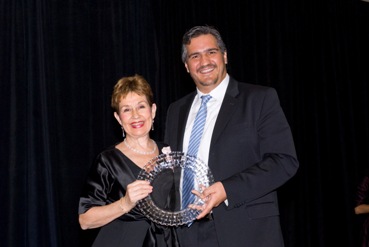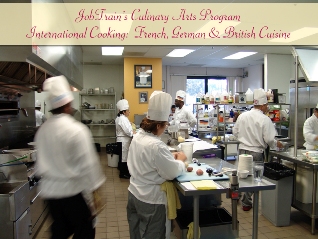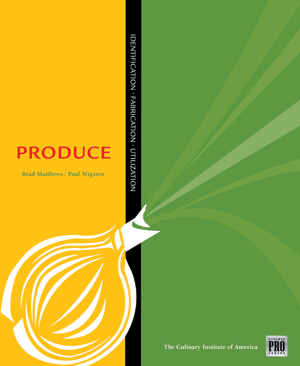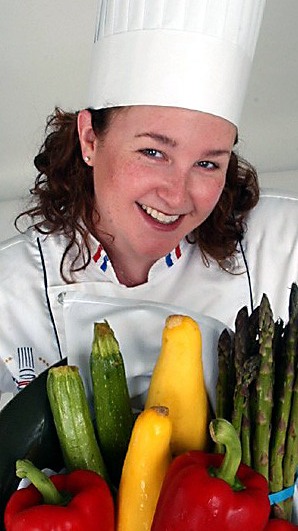Essentials of Wine Pairing
Tuesday, 04 May 2010 11:17By Edward Korry, CWE, CSS
Here’s what every wine server should know.
Service involves more than the step-by-step procedures of opening and pouring wine correctly; it includes suggesting wines that not only pair with the food being ordered, but also that guests will enjoy. That requires knowledge of how food and wines interact with each other so that both either taste the way their creators intended or are enhanced and includes being able to help quests with their selection.

 DC Central Kitchen’s Linda Vogler—who will present at CAFÉ’s upcoming Leadership Conference—helps transform despair into triumph for adult learners through food and service.
DC Central Kitchen’s Linda Vogler—who will present at CAFÉ’s upcoming Leadership Conference—helps transform despair into triumph for adult learners through food and service. Making students responsible for assessing their own performance can yield real differences in the way you teach and impact students’ attitude toward evaluation.
Making students responsible for assessing their own performance can yield real differences in the way you teach and impact students’ attitude toward evaluation. Teach students to communicate intent, enhance impact and add value by using business-building phrases and gestures at service.
Teach students to communicate intent, enhance impact and add value by using business-building phrases and gestures at service. Is teaching a world of different cuisines possible in only 50 minutes? Probably not, says Chef Weiner, but international cuisines can be successfully taught in a short series of classes.
Is teaching a world of different cuisines possible in only 50 minutes? Probably not, says Chef Weiner, but international cuisines can be successfully taught in a short series of classes. Educators seeking solutions for environmental efforts and teaching greener foodservice practices will find a wealth of information, products, services and contacts, May 22-25 in Chicago.
Educators seeking solutions for environmental efforts and teaching greener foodservice practices will find a wealth of information, products, services and contacts, May 22-25 in Chicago. Delmar, part of Cengage Learning and a leading provider of learning solutions for ongoing career development and education, announces the publication of Guide to Produce Identification, Fabrication, and Utilization (ISBN-13: 978-1-4354-0121-1, $58.49), a comprehensive guide to fruit and vegetables. Written by Brad Matthews and Paul Wigsten, this resource is part of the successful Kitchen Pro Series focusing on kitchen preparation skills from The Culinary Institute of America (CIA), the world’s premier culinary college, based in
Delmar, part of Cengage Learning and a leading provider of learning solutions for ongoing career development and education, announces the publication of Guide to Produce Identification, Fabrication, and Utilization (ISBN-13: 978-1-4354-0121-1, $58.49), a comprehensive guide to fruit and vegetables. Written by Brad Matthews and Paul Wigsten, this resource is part of the successful Kitchen Pro Series focusing on kitchen preparation skills from The Culinary Institute of America (CIA), the world’s premier culinary college, based in  Leaders of two travel and tourism giants came together for the April 5, 2010, groundbreaking of Florida International University (FIU)
Leaders of two travel and tourism giants came together for the April 5, 2010, groundbreaking of Florida International University (FIU)  Encouraging students to participate in professional organizations can help them excel in their careers.
Encouraging students to participate in professional organizations can help them excel in their careers.